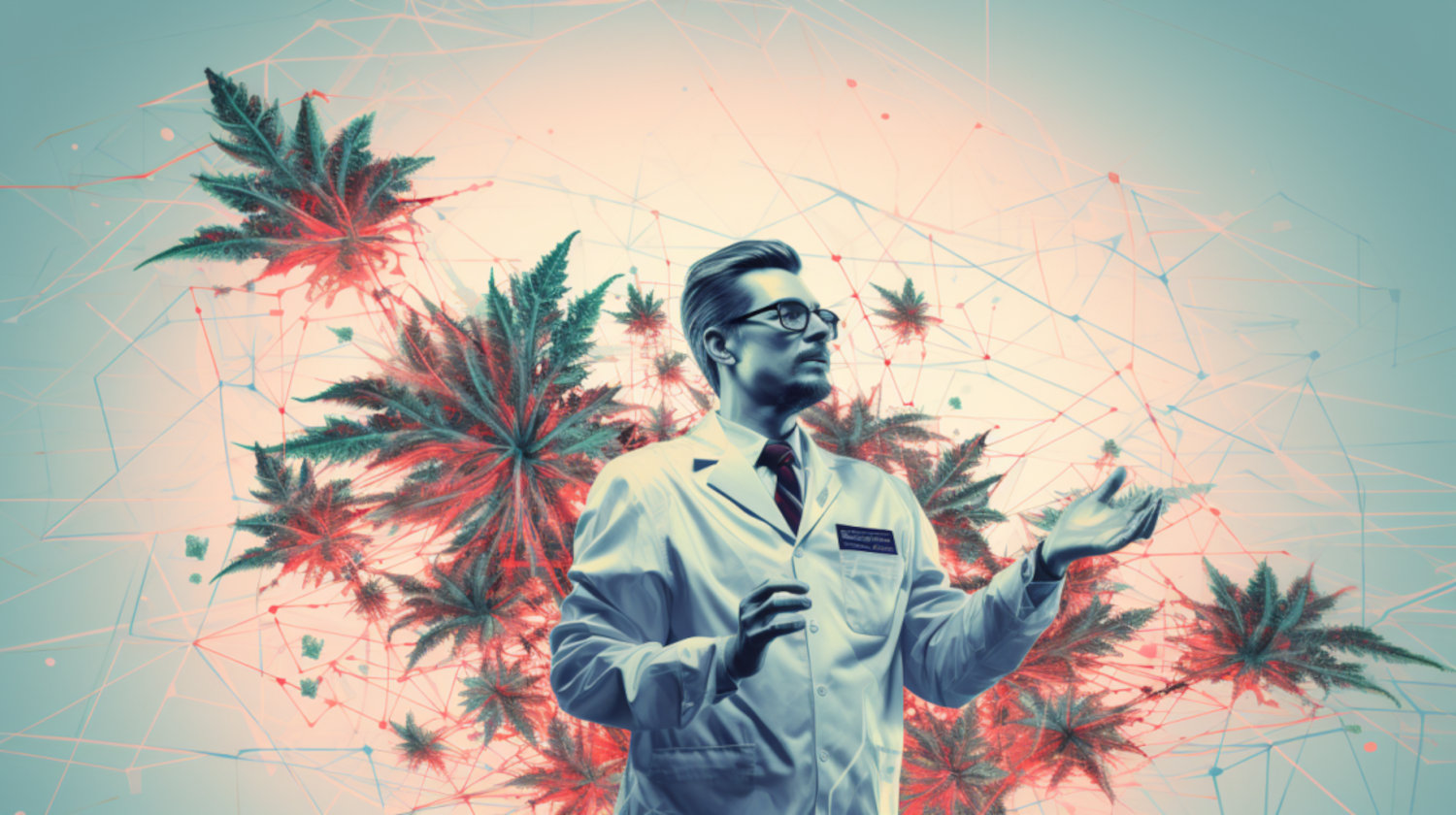Mental health continues to present a pressing public health concern worldwide. Many have turned to cannabis to aid in the process, seeing weed as a natural mood booster. But mixing weed and antidepressants can create an incompatible situation for patients.
Read on to learn more about the connection between THC and selective serotonin reuptake inhibitors (SSRIs) and why practicing caution is recommended.
What are SSRIs?
Selective serotonin reuptake inhibitors are the most commonly prescribed antidepressants today. They are considered relatively safe and nonaddictive.
In broad terms, SSRIs help depression patients by increasing their serotonin levels in the brain. Serotonin is a neurotransmitter that sends signals to the brain's neurons. Simultaneously, SSRIs block serotonin's reuptake, or reabsorption, into brain nerve cells or neurons.
The US Food and Drug Administration (FDA) has approved several SSRIs to address depression:
- Citalopram (Celexa)
- Escitalopram (Lexapro)
- Fluoxetine (Prozac)
- Paroxetine (Paxil, Pexeva)
- Sertraline (Zoloft)
Highly beneficial to many depression patients, SSRIs may also result in a range of adverse effects. In some cases, patients have reported various unfavorable side effects, including:
- Agitation
- Diarrhea
- Dizziness
- Drowsiness
- Dry mouth
- Headache
- Insomnia/sleep issues
- Nausea
- Nervousness
- Reduced appetite and weight loss
- Restlessness
- Various sexual performance problems, including erectile dysfunction
With so many possible side effects, finding the right SSRI can be arduous for most patients. When determining the best SSRI for a patient, physicians will consider the effect on depression symptoms as well as any potential side effects. Doctors will speak with patients regularly and conduct additional tests, including blood screens, to best understand a patient's physical and mental well-being.
SSRIs are just one of five significant classifications of anti-depression medications. Others include:
- Serotonin and Norepinephrine Reuptake Inhibitors (SNRIs): Similar to SSRIs, SNRIs also block norepinephrine reuptake.
- Tricyclic Antidepressants (TCAs): Discovered in the 1950s, TCAs block serotonin and norepinephrine reuptake, as well as acetylcholine, a neurotransmitter responsible for skeletal movement.
- Monoamine Oxidase Inhibitors (MAOIs): Also discovered in the 1950s, MAOIs prohibit the enzyme monoamine oxidase from breaking down the monoamines neurotransmitters, thus helping regulate mood.
- Atypical Antidepressants: A group of mostly newer discovered antidepressants that don't fit the categorization of the above and may treat several mental health conditions, including PTSD, social phobia, bulimia and borderline personality disorder.
THC and SSRIs: What You Need to Know

One of the hundreds of cannabinoids discovered in cannabis to date, THC works by binding to CB1 and CB2 receptors found in our brain and throughout the body – also known as the endocannabinoid system (ECS).
When this occurs, THC takes the place of the natural cannabinoid anandamide, which typically sends messages to the body. When THC takes its place, the messages sent become a bit less precise than usual. We notice this effect in our "high," when coordination, perception and stress levels may alter. Brain receptors affected by THC are primarily located in the areas associated with our memory, logic, pleasure, time perception, emotions and paranoia.
The ECS produces its own cannabinoids naturally, but when exposed to THC, the experience often leaves consumers feeling relaxed and uplifted. Often beneficial on their own, these effects may create an adverse response when combined with SSRIs.
Cannabis, notably THC, has shown promise in helping depression patients. However, the interaction between THC and SSRIs remains a highly concerning subject with ongoing research. At this point, clinical analysis is scant, and results often vary. Making conclusions from these findings can be challenging to say the least.
THC has shown the capability to limit enzymes responsible for SSRI metabolization. As a result, combining THC with SSRIs could result in a potentially life-threatening serotonin syndrome. This drug reaction occurs when two or more serotonin-boosting medications exist in the body. Milder symptoms of serotonin syndrome range drastically. They include:
- Agitation or restlessness
- Confusion
- Diarrhea
- Dilated pupils
- Goosebumps
- Headache
- Heavy sweating
- High blood pressure
- Insomnia
- Loss of muscle coordination or twitching muscles
- Muscle rigidity
- Rapid heart rate and high blood pressure
- Shivering
More severe and life-threatening symptoms include:
- High fever
- Irregular heartbeat
- Seizures
- Tremor
- Unconsciousness
If you experience or think you are experiencing serotonin syndrome symptoms, you should contact your physician or visit an emergency room immediately.
In lesser but still concerning cases, cannabis mixed with antidepressants, like barbiturates, can lead to increased drowsiness, making operating machinery dangerous.
With cannabis products rising in potency, researchers caution that symptoms of serotonin syndrome could become more common. For anyone suffering from depression who prefers to consume high-potency cannabis extracts through vaping, edibles or smoking, this may be rightfully concerning.
Those taking SSRIs or who plan on starting SSRIs should inform their physician about any THC use or intentions to begin consuming. This advice is particularly recommended for minors. Select research has suggested that starting, stopping or decreasing cannabinoid consumption can affect exposure to select SSRIs, including citalopram and sertraline.
What About CBD and SSRIs?
Cannabidiol (CBD) is its own complex cannabinoid, showing ample potential for scores of consumers, both medical and recreational. Unlike THC, CBD stands out for not producing an intoxicating effect. Meaning that you won't feel "high" like you would when consuming THC.
CBDs calming effects are felt by consumers once CBD interacts with the endocannabinoid system. CBD doesn’t have the same binding capabilities as THC, limiting its affinity for CB1 and CB2 receptors. So rather than attaching to these CB receptors, CBD antagonizes the receptors, which can serve to limit or lessen THC's noticeable effects.
More concisely, CBD can help you feel reduced effects from THC.
Those worried about taking too much THC may want to consider having CBD oil or another faster onsetting product, like a tincture, vape or dry flower, to consume just in case.
Like THC, CBD is often credited by consumers for potentially addressing various health conditions. Select anecdotal feedback suggests CBD could help with depression and anxiety.
And like THC, the interaction between CBD and SSRIs is still being investigated. It is believed that CBD could help lessen anxiety by blocking serotonin reuptake, helping elevate moods in the process. However, CBD has also been linked to limiting certain critical enzymes, including the P450 (CYP450), a key enzyme in metabolizing medications, including SSRIs. If CBD does inhibit the enzyme, then the effects of the drug may be reduced as well.
With findings incomplete, researchers have suggested using caution while additional clinical analysis is conducted regarding CBD and SSRI interactions. It is recommended that you speak with a physician if you plan to use CBD and an SSRI simultaneously.
How to Practice Caution When Using SSRIs
Despite the assertions of some consumers, we aren't close to making definitive clinical statements regarding how cannabis interacts with various SSRIs.
Proceed with caution by using some or all of the following steps:
- Speak with a Professional: Consult your physician before using cannabis or SSRIs.
- Abstain or Wait: Hold off on introducing cannabis to a treatment regimen until you're entirely sure of the effects an SSRI has on you. Introducing cannabis to an already uncertain drug outcome will almost certainly cloud the results. The same can be said for cannabis consumers about to start an SSRI – it may be best to take a cannabis break if possible.
- Track Your Results: Documenting your daily effects and outcomes is a great way to remember essential details. Many patients log their dosages consumed, consumption frequency and effects felt each day, giving you and your physician a detailed look at the results and how the THC and SSRI may be interacting.
- Consider a Low Dose: If you can't cut out cannabis temporarily, consider a lower dosage to reduce or avoid possible adverse drug interactions. This rule only applies to individuals who are able to adjust their doses. Medical patients are advised to consult their physician before altering cannabis doses or other medication.
Remember that cannabis and SSRIs aren't a one-size-fits-all solution for depression or anxiety. What works for one will not work for everyone. In many cases, trial and error will be part of finding the right medications. Far from ideal (but certainly the case at hand) patients are recommended to exercise caution and speak with their physician before making any decisions about combining CBD or THC and SSRIs.
The information in this article and any included images or charts are for educational purposes only. This information is neither a substitute for, nor does it replace, professional legal advice or medical advice, diagnosis, or treatment. If you have any concerns or questions about laws, regulations, or your health, you should always consult with an attorney, physician or other licensed professional.



